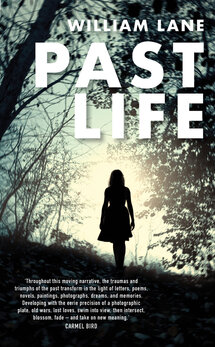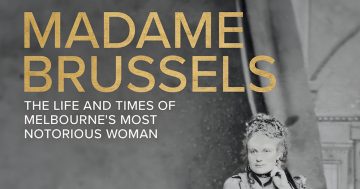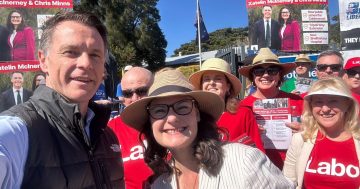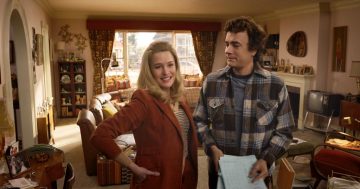Reviewed by Rama Gaind.
By William Lane, Transit Lounge, $32.99.
 The original concept for this novel explores how we might experience things that happened before our birth. That’s why, as Lane puts it, it has two timeframes, one in World War II in Eastern Europe, the other in Sydney in the not-too-distant past.
The original concept for this novel explores how we might experience things that happened before our birth. That’s why, as Lane puts it, it has two timeframes, one in World War II in Eastern Europe, the other in Sydney in the not-too-distant past.
In the earlier time frame, two friends, Friedrich and Julia, who have known one another since childhood, fall in love. They live in the Soviet Union in 1941. They have not long been together when Germany’s invasion of the Soviet Union separates them. Friedrich survives by collaborating with the Germans, while Julia becomes a partisan, fighting the invaders. So, one week Julia and Friedrich are lovers, the next they find themselves fighting on opposing sides.
In Parramatta, Anna grows up with her adoptive Russian mother Sophia. When her teacher Miss Glass gives her a Box Brownie camera, small acts of observation coupled with photography, in particular, become her escape.
On visiting the suburb of Castle Hill with her schoolfriend Lisaveta, Anna falls into a seductive world of gardens and orchards. At the Thompson’s place, she embarks on a mission to photograph the orchard by night and day. It is there she meets Friedrich, an older man, of German origin but from the Soviet Union, who lives in a shed on the property. She eventually learns that he was once a celebrated writer, his ambitions destroyed by the war.
Past Life creates an atmosphere that resembles a sense of déjà vu. Many times in this book, one character will remember another, past lives are intermixed with the present, and it is through secrets that connections are eventually revealed. The story feels personal, yet it deals with themes such as love and loss that are common to everyone.
It is wonderful to read about the various ways the rewards and upsets of the past play out in the present. It is the touching story of relationships across generations and is eloquently persuasive of coincidences and impacts.











